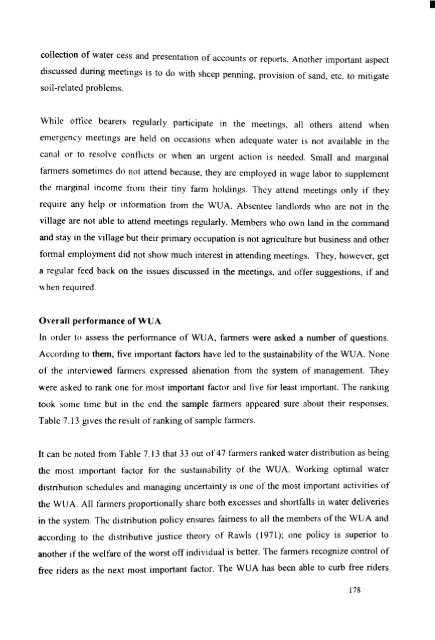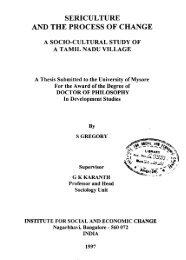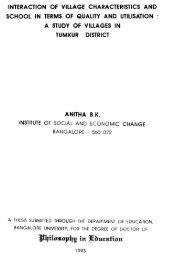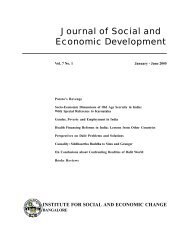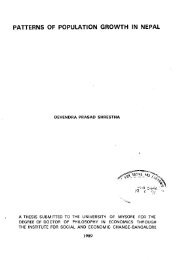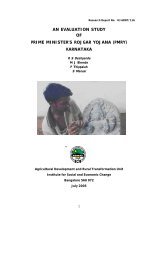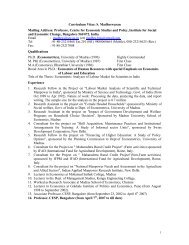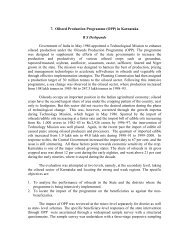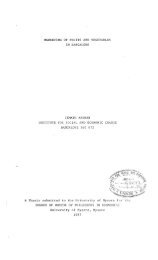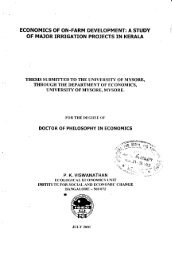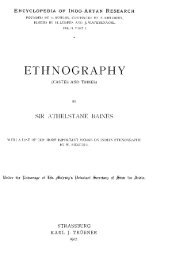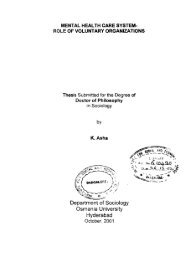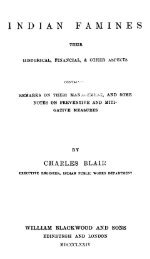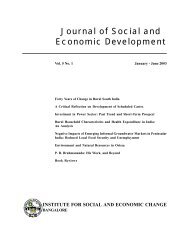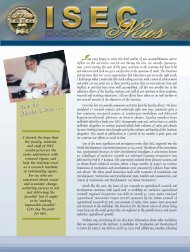Water Users Association and Irrigation Management - Institute for ...
Water Users Association and Irrigation Management - Institute for ...
Water Users Association and Irrigation Management - Institute for ...
You also want an ePaper? Increase the reach of your titles
YUMPU automatically turns print PDFs into web optimized ePapers that Google loves.
•<br />
collection of water cess <strong>and</strong> presentation of accounts or reports. Another important aspect<br />
discussed during meetings is to do with sheep penning, provision of s<strong>and</strong>, etc. to mitigate<br />
soil-related problems.<br />
While office bearers regularly participate In the meetings, all others attend when<br />
emergency meetings are held on occasions when adequate water is not available in the<br />
canal or to resolve conflicts or when an urgent action is needed. Small <strong>and</strong> marginal<br />
fanners sometimes do not attend because, they are employed in wage labor to supplement<br />
the marginal income from their tiny fann holdings. They attend meetings only if they<br />
require any help or infonnation from the WUA. Absentee l<strong>and</strong>lords who are not in the<br />
village are not able to attend meetings regularly. Members who own l<strong>and</strong> in the comm<strong>and</strong><br />
<strong>and</strong> stay in the village but their primary occupation is not agriculture but business <strong>and</strong> other<br />
fonnal employment did not show much interest in attending meetings. They, however, get<br />
a regular feed back on the issues discussed in the meetings, <strong>and</strong> offer suggestions, if <strong>and</strong><br />
when required.<br />
Overall per<strong>for</strong>mance of WUA<br />
In order to assess the perfonnance of WUA, fanners were asked a number of questions.<br />
According to them, five important factors have led to the sustainability of the WUA. None<br />
of the interviewed fanners expressed alienation from the system of management. They<br />
were asked to rank one <strong>for</strong> most important factor <strong>and</strong> five <strong>for</strong> least important. The ranking<br />
took some tIme but in the end the sample fanners appeared sure about their responses.<br />
Table 7.13 gives the result ofranking of sample fanners.<br />
It can be noted from Table 7.13 that 33 out of 47 fanners ranked water distribution as being<br />
the most Important factor <strong>for</strong> the sustainability of the WUA. Working optimal water<br />
distrihution schedules <strong>and</strong> managing uncertainty is one of the most important activities of<br />
the WUA. All fanners proportionally share both excesses <strong>and</strong> shortfalls in water deliveries<br />
in the system. The distribution policy ensures fairness to all the members of the WUA <strong>and</strong><br />
according to the distributive justice theory of Rawls (1971); one policy is superior to<br />
another if the welfare of the worst off individual is better. The fanners recognize control of<br />
free riders as the next most important factor. The WUA has been able to curb free riders<br />
178


